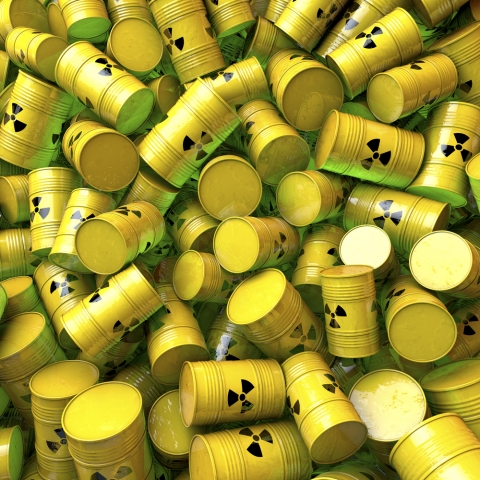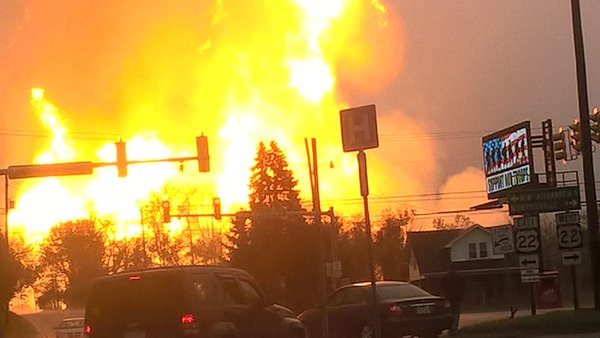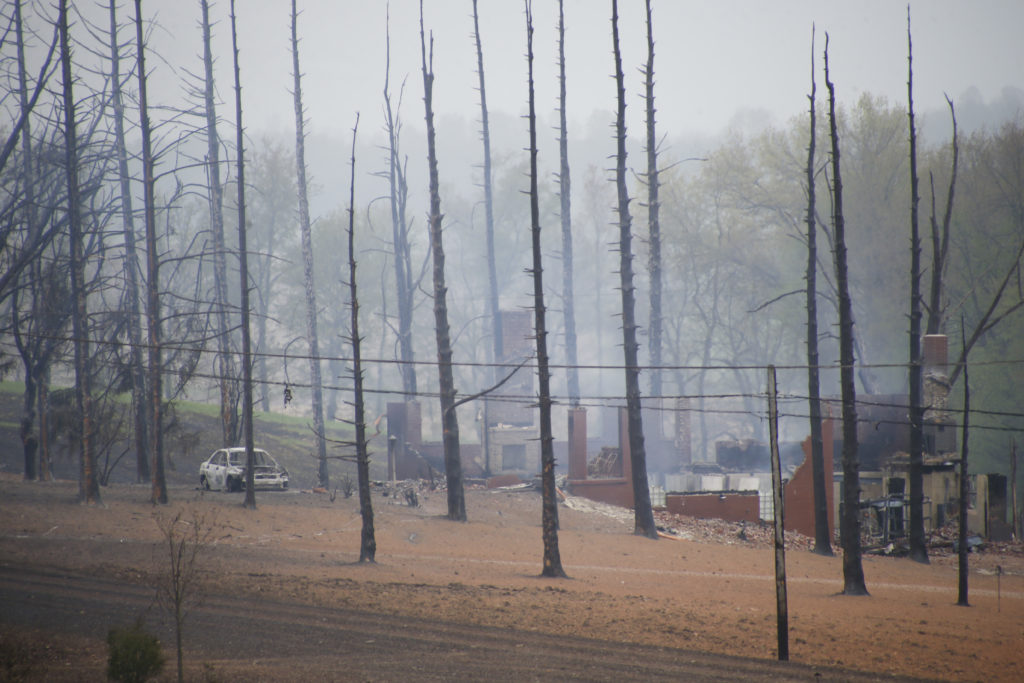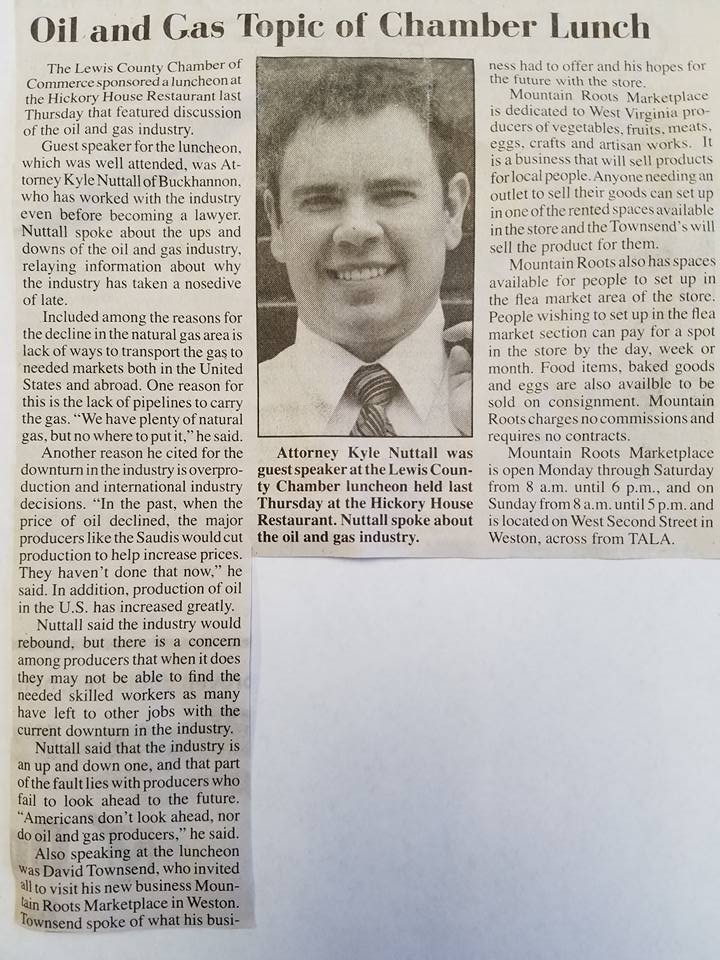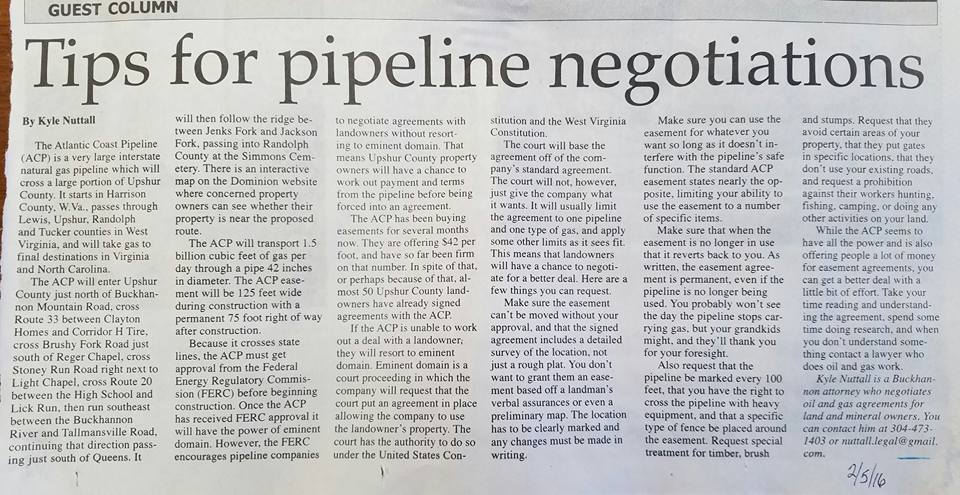In the last month people have become more confident that gas prices are going to climb. Gas production is dropping off and demand is increasing. It shouldn’t be a whole lot longer before leasing activity picks up and royalty checks start getting bigger rather than smaller. Following are the articles we’ve read in the last month that we think are interesting or important for West Virginia mineral and royalty owners. Enjoy!
Natural gas-fired power generation is increasing. This article gives some numbers. Also, the majority of gas-fired power plants are in shale gas producing regions. Big surprise, that……
It’s the day after OPEC met at DOHA, and oil prices haven’t dropped much. Now that’s a surprise. Why did it only dip a little? Oil workers in Kuwait went on strike. That’s really odd timing. I’d like to think that it’s coincidental, and it may be as Kuwait really doesn’t want to cut back on production in spite of low oil prices. It just seems like awfully good timing. Prices stay up for a short period, then drop after the strike is resolved, and nobody blames the Saudis. In the meantime, American producers still feel the pressure of low prices and control over those prices remains in the Middle East.
This Bloomberg articles points out the very interesting fact that sometime in the end of 2016, the amount of overproduction will drop from 1.5 million barrels per day to just 200,000 barrels per day. It’s still overproduction, though. Until there is underproduction we won’t see prices high enough to support American producers. There is still a stockpile of about 3 billion barrels of oil out there, after all.
This article from the Telegraph in England has a good rundown of countries and influences on oil prices. Of greater interest is the writer’s opinion that the last OPEC meeting was meaningless, regardless of the outcome; that the supply/demand balance is already pretty precarious, and the next shortage of oil is right around the corner; and that the Saudis have lost control of OPEC, or perhaps better said, OPEC no longer exists as an effective organization. With those premises, it makes one wonder whether the strike in Kuwait wasn’t possibly engineered at some level to make it look like the last OPEC meeting was actually effective, but then the meeting fell apart and the strike continued anyways because the reasons for striking were all there. It’s tin-foil-hat thinking, but who knows? Where billions of dollars are on the line all kinds of things are possible.
Southwestern Energy, in spite of posting a 1.1 billion dollar loss last year (yes, billion with a “b”) is renewing leases here in West Virginia and appears to be here for the long-term. The article focuses on the decreasing numbers of rigs, but it mentions lease renewal and it’s a lot of fun to try to read between the lines of the executive quotes and figure out what’s actually going on.
The strike in Kuwait is over, so they’ll be bringing their full production back online.
The Trans-Alaska pipeline is back online after a fire put it out of use for a few days. That little incident propped up oil prices for a few days.
The international price for liquefied natural gas (LNG) is dropping. It’s the usual story, too much supply and not enough demand (WSJ: Google the headline and click the link Google provides to avoid the paywall). Feeding the supply side is American natural gas sourced from fracking companies and liquefied at brand new plants for shipment overseas. Pushing the demand side is Japanese electrical generation which is switching over to solar and turning back on some nuclear plants that were closed after the Fukushima disaster. Natural gas markets are not yet global, but they’re moving that way. It won’t be long before we’re more worried about the international benchmark for natural gas than we are the national benchmark. For now it’s not a huge factor for West Virginia, but it’s something to keep an eye on.
Iran has discovered a shale oil field. It’s nothing that will affect prices or supply at this time. Iran produces oil at about $10/bbl and shale oil costs somewhere north of $40/bbl to produce, so it doesn’t make sense to develop the shale until oil prices go up significantly. It’s there, though, and will be another source of oil in the future.
Christine Buurma with The Washington Post engages in a little speculation regarding the price of natural gas. She’s bearish, while admitting that prices are climbing a bit. She points to the Marcellus being such an inexpensive place to produce, as well as DUCs in the Marcellus, as well as increased efficiency on the part of drillers, as reasons why she doesn’t see gas prices increasing much in the near future. A hot summer would go a long way toward increasing demand, which would drive prices up. She’s not convinced, though, arguing that natural gas prices rarely reach predicted highs, and quoting an equity analyst, Mark Hanson with Morningstar in Chicago, as saying you should never underestimate the Marcellus. She’s probably right. It’s going to be 2017 before we see significant recovery of natural gas prices to the point where oil and gas companies start taking leases and producing at prices that return much of a royalty to our customers.
CNN Money reports that Saudi Arabia thinks that oil prices will start to rise at the beginning of 2017. Interestingly, oil prices have been on the rise since February of this year. They must be expecting significant increases, or perhaps a decrease in price between now and then. The same article says the IEA (Internation Energy Agency) thinks global demand will rise slightly above global supply in the second half of this year. Saudi Arabia, of course, will produce as much oil as people will buy from it. Since we’re in May of 2016, the second half of the year is less than a month off. Interesting times in the energy sector. Interesting times.
A Royal Dutch Shell off-shore oil rig spilled about 90,000 gallons (2000 barrels) of crude and shut down. The shut down drove oil prices up significantly during the day, but when word came down that the rig would be back online later in the day prices settled back down to about where they had started. Oil and gas prices are so fickle. However, the prices have been around $45/bbl and just above $2/MCF for quite a while. We may be seeing better royalty checks and more leasing in the near future.
The fires around Fort McMurray have been heavily reported. We only link to this article to provide some information as to how it affected oil prices.

